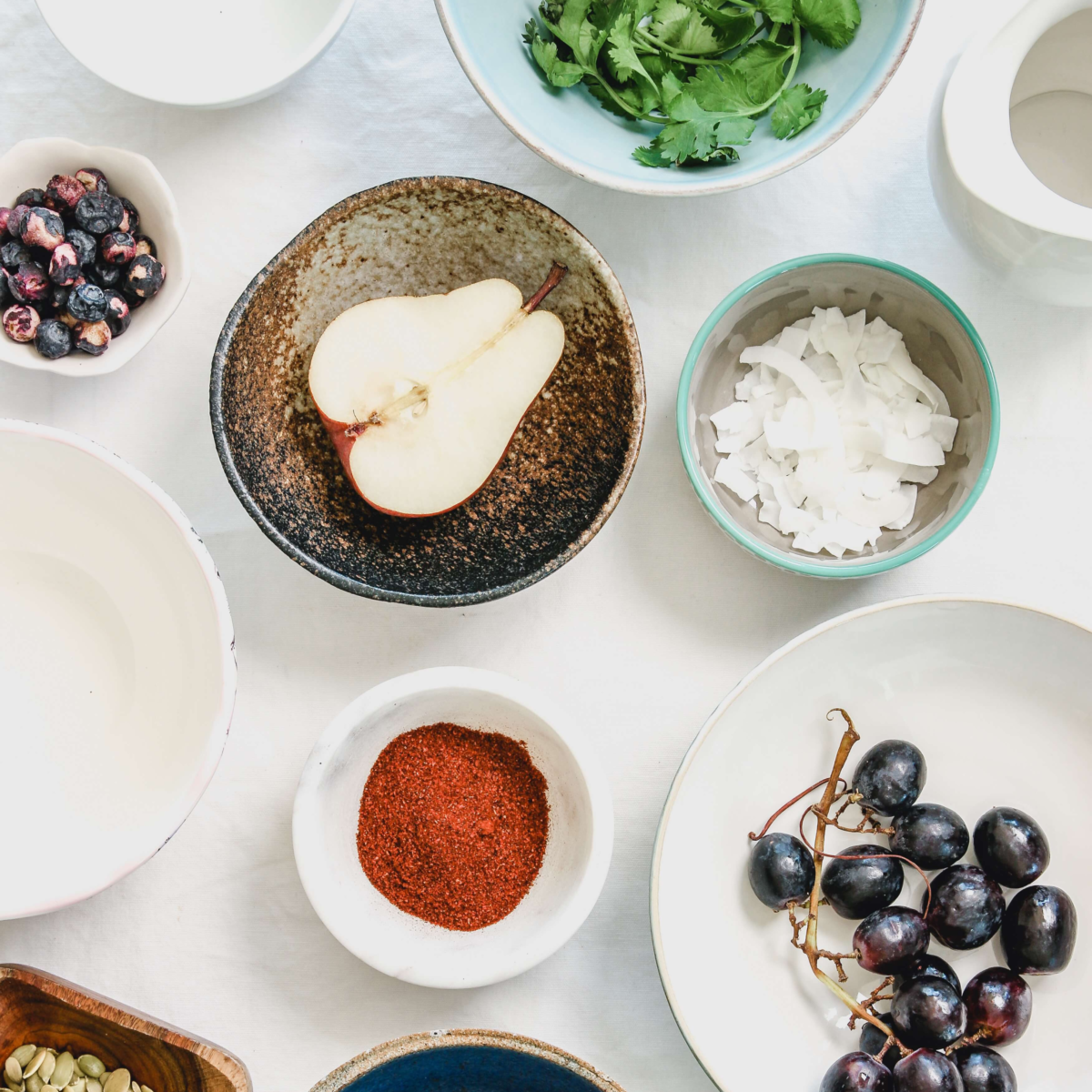Cancer Nutrition & Diet
Dr. Donald Abrams
Integrative Cancer Therapies
Dr. Donald Abrams is a leading integrative oncologist at the Osher Center for Integrative Medicine at UC San Francisco (UCSF).
Here, he leads us through topics across nutrition in cancer including food recommendations, “good cancer diet,” foods for inflammation, and discussions around dairy, eggs, and sugar for cancer patients.
His integrative oncology interests are in medicinal mushrooms, Traditional Chinese Medicine interventions, and nutrition.
What is your general guidance to people about nutrition and diet with cancer?
I am not a believer in any of the so-called name diets:
- vegan
- ketogenic
- paleo
- all of those
I believe the diet should be organic, plant-based, antioxidant-rich, anti-inflammatory whole foods.
I see a lot of patients who say I have cancer, I’m going to juice everything or I have cancer, I’m going to sprinkle broccoli powder in a smoothie. I think it’s always better to eat whole foods.
Inflammation, we now believe, is one of the major causes of degenerative diseases of aging, dementia, heart disease, and cancer. And there is much that we can do about what we eat and what we don’t eat to impact inflammation.
Oxygen is two molecules linked together. That’s how we breathe. That’s how we live. But when those oxygen molecules separate, they create so-called free radicals or reactive oxygen species, which knock into our DNA causing damage, leading to aging or cancer. Antioxidants take those free radicals out of circulation so they don’t do damage.
The power of antioxidants
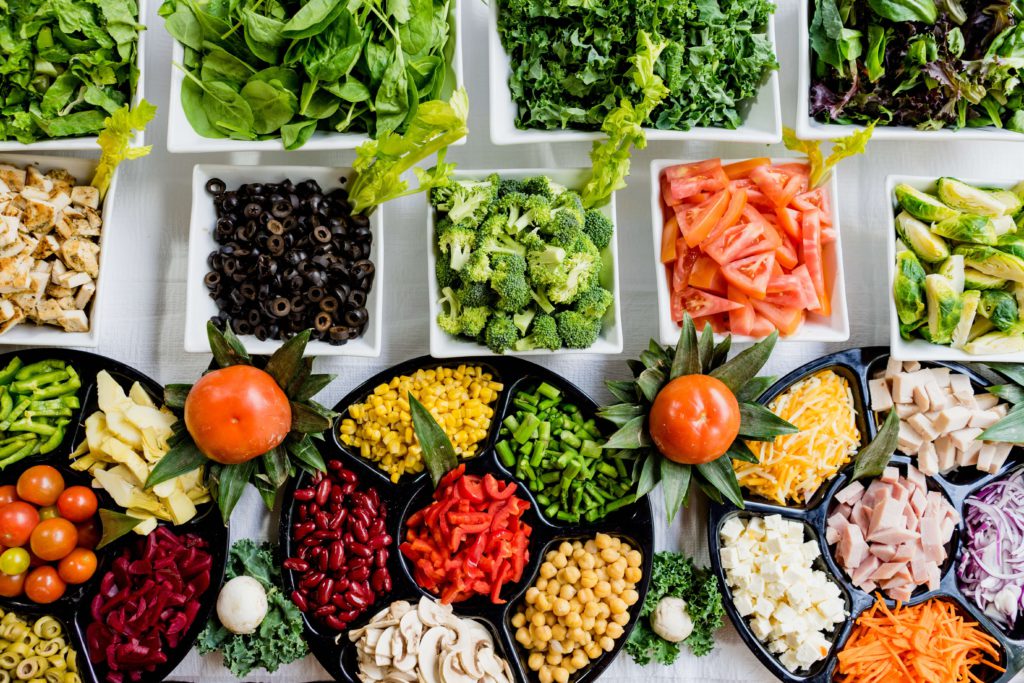
Turns out, most foods that are rich in antioxidants are plants. Animal products are not a good source of antioxidants. That’s why I say the diet should be plant-based.
I don’t think you need to be vegetarian or vegan or raw, but you should have at least five to nine servings or three and a half to four cups of fruits and vegetables each day. More vegetables than fruits.
And then as much as possible, they should all be organic. And that’s not just to avoid herbicides, pesticides, and fertilizers, which are chemicals that we don’t need in our bodies.
It’s because the plant that’s grown outdoors organically needs to fight to protect itself from other plants, birds and insects, and the sunshine. And the only way a plant knows how to protect itself is by making chemicals. It turns out those chemicals that the plant makes are the ones that benefit us.
So let food be our medicine and medicine be our food. Organic is more potent than conventional.
Decreasing inflammation
Inflammation is responsible for many degenerative diseases of aging, probably not for early-onset cancers. But it is still important to decrease inflammation.
Anti-inflammatory foods
The foods that I like best are the cruciferous vegetables flowers growing in the shape of a crucifix—broccoli, cauliflower, and Brussels sprouts.
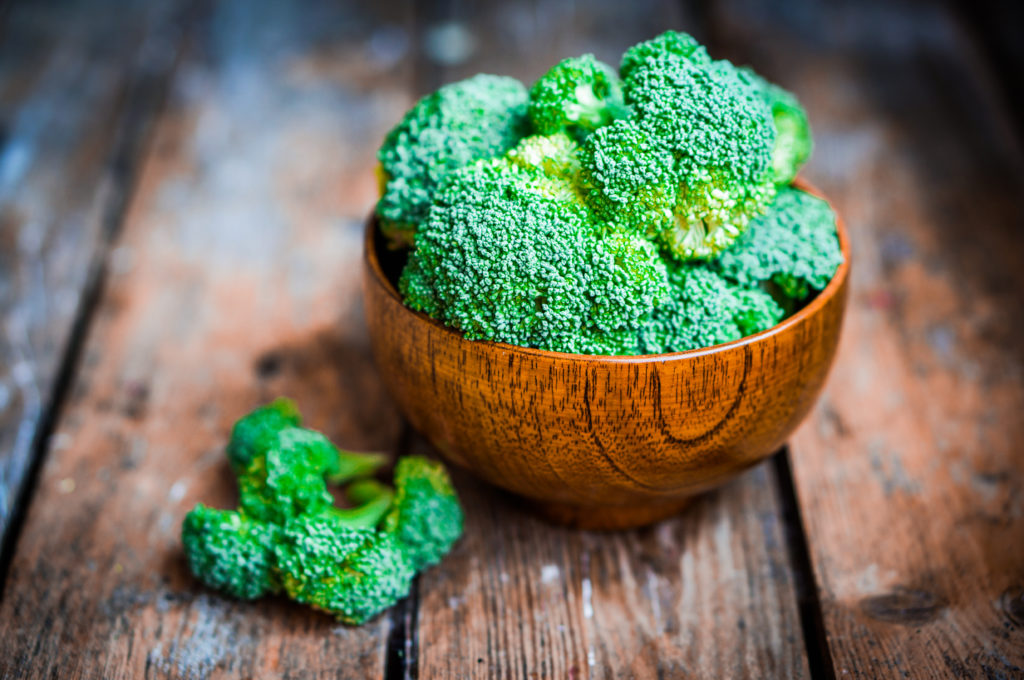
But also cruciferous roots and green leafy like cabbage, kale, collard green, bok choy, and arugula. These all contain a chemical so potent, reducing the risk of cancer that we started to look at it as chemotherapy.
Orange, yellow vegetables are good: carrots, sweet potatoes, squash, heavily pigmented fruits. The berries are all very good for you: blueberry, blackberry, raspberry. They really should be organic because they’re like sponges for toxins.
I like ginger, garlic, onions, and turmeric for seasoning, as well as the Mediterranean spices: basil, thyme, rosemary, and oregano.
For animal products, I like deep cold-water fish: salmon, black cod, albacore tuna, herring, mackerel and sardines, and organic poultry.
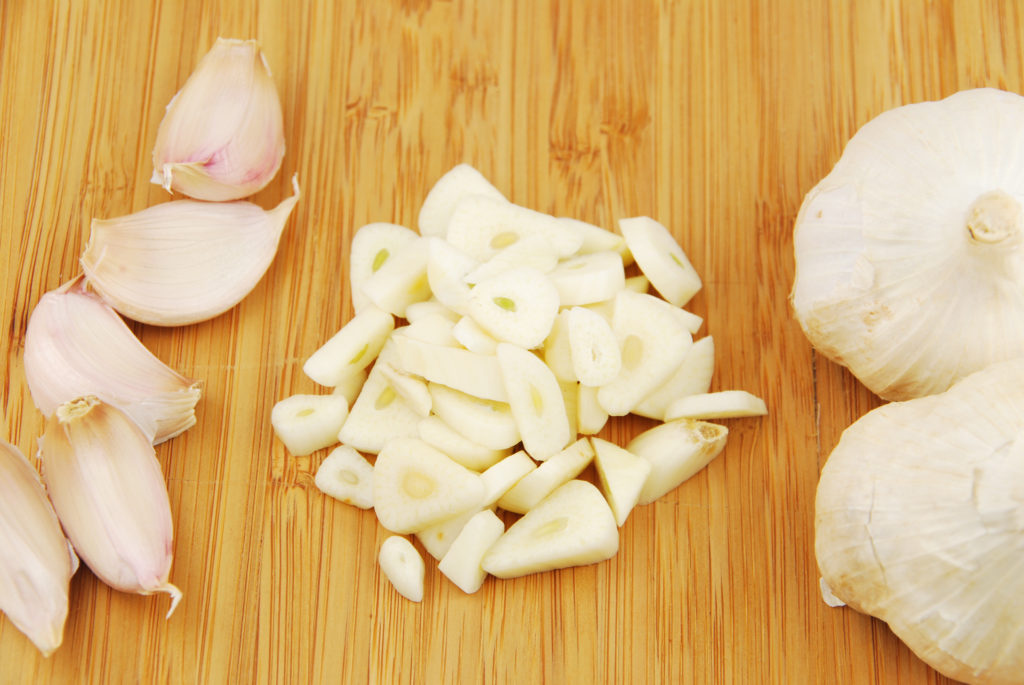
Eggs are not as good a food as people make them out to be. We have a strong egg lobby. I’m also not so fond of dairy.
Guidelines that I use are the American Institute for Cancer Research, World Cancer Research Fund, and their guidelines for reducing the risk of cancer.
But Number 10 says for cancer survivors, follow the nine guidelines above, and their guideline on meat is to limit consumption of red and processed meats. It used to say in 2007, limit consumption of red meat and avoid processed meats, which I think is a better guideline.
The worst things to eat
Processed meats like bacon, salami, bologna, hot dog, sausage, and anything you put on a pizza are considered a class one carcinogen by the World Health Organization. But the number one is sugar, especially refined sugar. Sugar attached to fruit is fine, but sugar that’s refined or added to so many foods nowadays is not good for us at all.
Dairy and lactose intolerance
There’s no other animal that drinks other species’ milk, but no other animal that drives a car, goes to college, either. So that’s not a very good argument.
No animal drinks milk after they’ve been weaned. And by the age of three or four, we actually lose the ability to digest the sugars and the proteins in dairy.
We make a big deal about fat, low fat, no fat, two percent. It’s not the fat. If you want a dairy product, butter is probably best because it’s mainly fat.
We talk about lactose intolerance as if it’s a disease or a disorder, when in fact it’s the norm and the ability to digest lactose is actually a genetic mutation on the second chromosome found mainly in Scandinavians who needed to digest reindeer milk in times of freeze.
The rest of us, particularly Asians, are all lactose intolerant and we don’t know until we stop.
Yogurt
So people always then say, well, what about yogurt? In yogurt or kefir, the sugars, and the proteins have been altered by the bacteria. So if you need a dairy product, butter because it’s mainly fat or yogurt or kefir, as long as they’re not artificially flavored, artificially colored, or with added sugar.
Cheese
People then always also ask, what about cheese? Well, cheese is dairy. But many of my patients ask me to watch the movie “What the Health?” which is a militant vegan conspiracy theorist movie that suggests that modern medicine is withholding information about nutrition from the world because we want to continue to treat diabetes, heart disease, and cancer.
But the one thing I learned in that movie is that when we try to digest the casein—the protein in cheese—it becomes a case of morph, which complexes with the opiate receptor in the brain. So people actually do become addicted to cheese. And that’s why that’s a hard one for people to stop.
Insights on Different Diets
For example, the ketogenic diet, which is basically 70 percent fat and 30 percent protein and no carbohydrates is probably the least inconsistent with the recommendations from the Institute of Medicine on what constitutes a healthy diet.
I hear patients tell me all the time I cut out carbs, carbohydrates, fruits and vegetables or carbohydrates, fruits, vegetables, whole grains—all the things that we’re supposed to eat. I think what they’re saying is they cut out simple carbohydrates, white bread, white pasta, white rice.
That’s probably a good idea because those things become sugar very quickly in the bloodstream. So you know that the ketogenic diet, which was developed in the 1920s as a treatment for epilepsy in children because we didn’t have any anti-seizure medicines at the time. Why would somebody with cancer think an anti-epilepsy diet would be healthy for them?
I think what ketogenesis does is decrease insulin and insulin growth factor—both of which promote inflammation and cause cancer cells to grow.
I say the best way to do that is to eliminate sugar.
Sugary drinks
The number one guideline is to be at a healthy weight. Number two is to be physically active. And number three is the first that says anything about food. And it was unveiled in 2007 as a new guideline, and it said avoid sugary drinks.
You can drink a cola beverage, hopefully not, or a fruit punch, which is probably glucose and high fructose corn syrup, or you can squeeze three oranges in the morning. But they’re all the same because if you eat an orange, the fiber slows down the absorption of sugar into the bloodstream. But if you squeeze the sugar away from the fiber, it’s like drinking a carbonated cola beverage.
In Australia, in fact, they’ve rated foods in the supermarket for consumers, and they’ve dropped orange juice from five stars to two stars.
When the body sees all that sugar again, it responds with insulin and insulin-like growth factor, both of which promote inflammation, and the growth factor is a growth factor for cancer cells as well. So that’s why sugar is number one.
I think patients with lymphoma are very aware of what a PET scan is and what they inject you with in a PET/CT scan is radiolabeled sugar. And where does it go? To the active cancer. So we’ve taken advantage of the fact that cancer loves sugar to figure out where it is and how to stage it.
Foods for estrogen-positive breast cancer
I think the confusion probably is mainly around soy. Soy is actually good for us.
The reason that Asians living in Asia eating an Asian diet that is rich in soy have lower rates of both breast and prostate cancer is that soy, especially during adolescence, modulates hormones and will decrease the risk of those cancers
Soy is a plant estrogen or a phytoestrogen. Women, particularly with estrogen receptor-positive cancers, either breast, ovarian or uterine cancer, are concerned and fearful that soy might make their cancer worse.
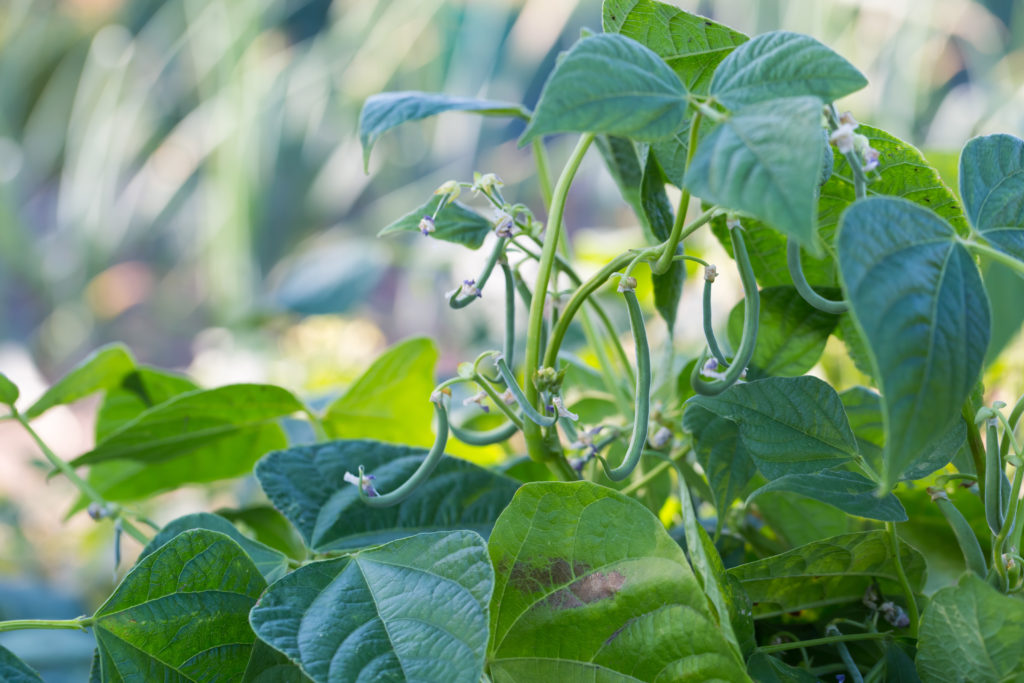
In fact, large studies, including one done by Kaiser in Northern California, have demonstrated that women who eat whole soy food daily—soybean, soy milk, tofu, tempeh, or miso—have a decreased risk of recurrence of their breast cancer.
That is a very frequent question that I have, and I often surprise people by reviewing that data with them.
There was also a large study in Shanghai that revealed the same. Soy is actually good for women with breast cancer. The issue is really that no plant estrogen can compete with a woman’s own estrogen as far as potency.
But somehow, the soy probably blocks the effect of a woman’s estrogen in driving estrogen receptor-positive cancers.
